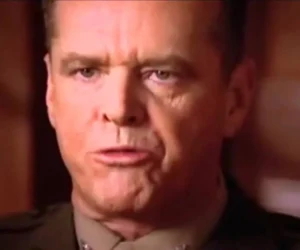Perhaps you saw the movie A Few Good Men with its famous ending scene where the of the Guantanamo Army Base commander bellows at the prosecuting attorney, “You can’t stand the truth!” Yes, the base commander had done something terrible. Yes, it was good theatre to watch the plot work out. And, once again, we learned that there are often many levels upon which to try to understand the truths’ leaders live with.
The recent death of Jimmy Carter has brought forward retrospectives both good and bad, and most of us just want to remember the good when someone dies, especially when we believe in our hearts that they were good people. After all, what’s the point of criticizing a person when it can’t change situations, even if that criticism is deserved on some level.
History is hard to reconstruct fairly because it is most often written by the victors. So, they tend to color the record, forget to tell the other side of the situation, and often exaggerate the claims. Here is an excellent summary of the public views of Jimmy Carter at the time and over time: https://www.cbsnews.com/news/jimmy-carter-retrospective-public-opinion-cbs-news-poll-analysis/
The summary I most often hear now is that Jimmy Carter was a good man but a lousy president. This article concludes the same. We did have a second oil embargo causing an energy crisis that transformed the world. Out of that, he was the first president that set us on a path to energy independence, which we now are close to achieving. He was right insisting we all had to “do our part individually,” but that wasn’t popular then and remains unpopular now.
Are we fair when we use public opinion as the criteria for good or bad? Carter was right on our personal accountability, and it is even truer today. Today’s electorate does not want any accountabilities … they want others to simply make problems go away. As a result, we are overweight and lazy in almost every dimension of life. Perhaps we have replaced needs with wants because we don’t want accountability at all.
Yes, the interest rates under Carter were crushing. I literally couldn’t afford to sell our house and move into another one at the same price because my mortgage was at 8% and the mortgage rate then was about 16%. But I never thought I should blame him for that. The world situation was unsettled in the middle east … just like it is today … but actually a bit safer back then even though we didn’t know it … yet.
Somewhat serendipitously, Susan and I have started watching an Amazon Prime four-part series covering Winston Churchill on how he led Britain through wars, somewhat by the skin of his teeth, but largely because of his incredible talent as a speaker and leader. He was a realist in his remarks, recognizing it was going to be brutally tough on everyone, but the goal was worth the sacrifices. Where is that kind of leadership today? Could it even exist?
History is written by the victors, and I hope it is kind to Jimmy Carter. What point is there in pointing out the flaws of a very good man, who upon hindsight might appear to have made errors in judgement? I like our pastor’s approach to funerals. He captures the wonderful and humorous stories about their lives and does include what we can all learn from their challenges but avoids outright criticism. After all, what’s the point?
